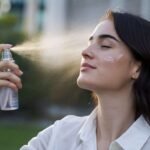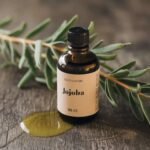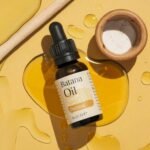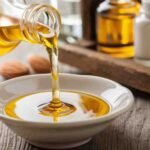How to Get Spray Paint Off Skin-Top 10 Methods
In this article we will talk about how to get spray paint off skin Spray painting, a portable and easy-to-use tool for artists making masterpieces and home improvement lovers, often leaves the skin of the user equally marked as the surface it is intended for. This ranges from a creative disaster to unintended contact; therefore, the skill of removing spray paint properly from the skin is necessary. Here, we will cover different approaches, starting with the speedy solutions and moving to the professionals, all of which boil down to a clean and safe surface after finishing the painting job.
Introduction
The fact that a can of spray paint (which is pushed through a nozzle) is a great way to paint on different surfaces but is not precise in its application to the desired surface is something to take into consideration. Irritation of the skin and versatility and dabbing it on the skin bring about the use of spray paint, but it is a chemical substance that hurts the skin when comes in contact with it. Very often during the painting class, there are accidental spills or splatters, and also when one overspray, which is supposed to be cleaned immediately with special cleaning techniques, otherwise it may pose danger to skin and may harm health.
What Is Spray Paint
Before we move to the removal methods, it is important to comprehend the writeup and peculiarities of spray paint. Normally, spray paint contains paint pigment, a binder, as well as a propellant that comes in a pressurized container. The makeup can change depending on the type of paint, with formulations being adjusted to suit different applications −metal, wood, or plastic surfaces.
Spray paint hazard on skin
The spray paint may be used for outdoor painting jobs in case of skin contact with the paint, and the paint is chemically certified. Hence, it can be hazardous to the health of the person who is using the paint. The spray paints mainly contain solvents and pigments that can produce skin irritations, allergic reactions, and chemical burns upon contact if we are unprotected from them for a long time. In addition, pollutants in spray paints are absorbed into the skin and after a certain time, they may launch serious illnesses that may cause serious damage to internal organs.
Precautionary Measures
To assure the safety of spray painting, it is necessary to take steps of precaution. Gloves, long-sleeved clothes, and eye protection are important for personnel to have because they can provide a physical barrier in the event of an accidental touch. Additionally, maintaining proper ventilation in the area of work will scatter the paint fumes and render the cases of inhalation or skin absorption less likely.
How to Get Spray Paint Off Skin Top 10 Methods
The spray painting is not an exception and once it happens, everybody should know how to cope with it being on the skin. Here are the top 10 methods to get spray paint off your skin:

1. Soap and Water
A simple and at the same time the most accessible method is by washing your hands with soap and water. This technique works well for fresh paint stain application. In case you have come in contact with corrosive chemicals, simply rub your hands with soap and wash with running water under a warm temperature. The soap works to dissolve the paint bits, making it easier to wash them off.
2. Baby or Mineral Oil
Baby or mineral oil is a suitable choice for taking spray paint off the skin, and it works very well if the paint is already dry. Taking a generous amount of oil rub it into the skin in the affected area and gently massage to the skin. Give it a few minutes to allow the oil to penetrate the paint successfully and then take it off with a clean cloth or tissue paper.
3. Nail Polish Remover
Nail polish removes the solution composed of acetone or ethyl acetate which are powerful solvents capable of dissolving paint of any kind. Nevertheless, this means can have bad effects on the skin, as it is harsh, and could lead to irritation. Use a little test nail polish remover on a cotton pad or ball and slowly clean the paint mark until it fades away.
4. Rubbing Alcohol
The other solvent that works well is rubbing alcohol or isopropyl alcohol which is better known as. Its deed is to crush the paint particles and detach them from the skin’s surface. Just immerse a cotton ball or pad into some rubbing alcohol and softly rub it onto the paint stain until it goes away.
5. Acetone
On rare occasions, when even the low-to-mid strength solvents are unable to get the paint stains off, acetone is the ultimate remedy to address the problem. Acetone is a very good solvent for removing even the toughest paint, but since it can also remove natural oils along with the paint, this might leave you with dry skin and irritation. As acetone is very drying, only small amounts should be used and always rinsed off with water to remove any residue of acetone.
6. Vaseline or Coconut oil.
You may take away any of the two softening agents such as petroleum jelly or coconut oil to soften the dried paint and make its removal easy from the skin. Cover the affected part of your body with a thick layer of Vaseline or Coconut butter and wait for 3-4 minutes. I will follow this up with a light amount of oil between the palms of your hands and then to the skin. Swipe the paint away from the surface with a clean piece of cloth or tissue.
7. Lemon juice and baking soda
Lemon juice and baking soda in equal amounts can serve the purpose of a homemade scrub too and be helpful if you want to get spray paint off your skin. Lemon acts as an acidic substance that helps in the breaking of the paint particles, while the hard texture of baking soda helps in getting rid of the stain by scrubbing. Combine the baking soda and lemon juice in each equal portion to form a thick paste, and then apply it to the paint stain and softly scour it.
8.Olive oil and salt:
A small amount of olive oil with a pinch of salt can be used as a scrub to remove spray paint from the skin and it can be done naturally. The paint is being eased by the remedial oil, and the salt is a more palpable scrub as an exfoliant to get the stain off. Take about one tablespoon of olive oil, mix it with a pinch of salt to create a little dry paste, and apply it gently on the paint stain. Next, clean it with warm water.
9. Dish Soap and Sugar
If you mix dish soap with sugar in a solution what you have is a scrub which can be used to get rid of spray paint off the skin. The paint will be able to be opened using the soap which is a chemical abrasive to the paint surface, while sugar works as a scrubbing tool, which can help to remove the stain. Insert a spoon of sugar into a doughy paste – the application of the substance will be circular and scrubbed constantly.
10. Shaving Cream
Eumenide also performs the role of a wonderful scrubber in being able to draw the paint off the skin by its creamy nature and soft abrasive properties. Put a thick layer of cream on the parts that trouble you and let it stay on your affected areas for a while so that it gets absorbed. Finally, apply the cream to the skin and wipe the paint with a clean cloth or tissue in gentle movements to massage the cream into the skin.
These are the top 10 ways to remove the pain from your skin. Make sure any solvent or abrasive you use is tested on a small part of the skin first, otherwise, you may experience irritation and dryness. Use a moisturizer to prevent this.
Post-Removal Skin Care
Once sprayed paint is safely removed from the skin, it is crucial to provide appropriate skin care to bring back the skin’s health and integrity. By applying a light moisturizing lotion, the skin gets back its moisture that is lost during the process of exfoliation and gets rid of any kind of irritation. Moreover, abstaining from other chemicals or scratching that are abrasive keeps away from further outbreaks of skin problems and aids in the smooth healing process.
Safety Considerations
The safety of spray paint removal is paramount. You should never compromise it as it may cause skin health and general wellness problems. The most effective way to do it is to prevent direct skin contact with such harsh chemicals or solvents because that reduces the chance of irritation, burns, or allergic reactions. If worrying signs like prolonged redness, swelling, or blistering happen, the best treatment is to seek medical help as soon as possible to avoid further problems and to ensure the right treatment.

DIY Natural Remedies
For those who favor natural or homemade remedies, several household ingredients can efficaciously help in removing spray paint from the skin. Lemon juice, famous for its acidic qualities, should be mixed with baking soda to tie paint residues and stains. It also helps in lightening stains. Just like a combination of olive oil and salt makes a gentle scrub, it removes the paint particles without leaving dry and flaky skin.
Professional Assistance
Home remedies may not be as effective in some cases or may trigger prolonged reactions despite initial treatment. It is therefore advisable to consult your doctor in such situations. Dermatologists are trained in the detection and treatment of diverse skin disorders caused by chemical exposure or allergic reactions. In addition to that, skin-friendly paint removers written for fragile skin places come to the rescue of tough-to-eliminate paint marks without the risk of damaging your skin.
Tips for Specific Situations
It is up to the type of the paint stain and to the skin area they happened. In some cases, these situations will require removing methods that are tailored. When making out the removals of sensitive areas like the face or the hands, it is therefore wise that one uses milder methods and stops all over scrubbing or even rubbing that might end up in injuries. Additionally, for larger paint surfaces and extended exposure sessions, getting timely help and following the correct removal processes become necessary to prevent the occurrence of complications.
Common Mistakes to Avoid
For instance, the resulting in skin problems such as skin irritation or skin health which may be caused by a few common mistakes in the process of cleaning the paint spray. It can be a consequence of rough treatment involving steel wool or a sponge which are too harsh and can cause skin irritation and worsening of acne condition. Moreover, the neglect of health safety precautions like wearing respirators or breathing masks while performing such chemical actions could result in inhaling dangerous substances or getting chemical exposure.
Environmental Considerations
Undoubtedly, to protect not only one’s health but the overall environment, proper disposal of contaminated substances and eco-friendly paint removal should be utilized. The rule to regulate the dumping of paint-soaked materials on the land and water would lower soil and water contamination mitigating its ecological impact. On the other hand, trying to find a safe, environmentally friendly paint remover or some natural alternatives is one more way to reduce the number of chemical-based products used. By doing this, we would be promoting a more environmentally friendly way of paint removal.
Conclusion
Summing up it is worth mentioning that the understanding of how to manage spray paint correctly is very important for both skin health and safety during painting tasks. A person who understands the formulation of spray paint can take preventive actions and use the right removal technique to reduce the probability of skin irritation, allergic reactions, and chemical exposure. Whether you decide to go the DIY route or seek help from a professional, the quick removal of spray paint ensures a clean skin surface, allowing you to easily continue your creative endeavors without worrying about your skincare routine. Also follow us on medium.
FaQs About How to Get Spary Paint Off Skin:
How do I remove spray paint from my skin?
Begin by washing the area heavily with soap and warm water. If a recent year, you will surely wipe most traces of paint with soap/water. For softer stains, a simple use of oil-based products like baby oil, coconut oil, and olive oil will do. Smear the oil on a ball of cotton or a cloth then start the soft rubbingmotion: the paint should start to come off as you progress. Do this subsequently, washing the region again with soap and water.
Is it safe to use chemical solvents to remove spray paint from skin?
Chemical materials such as acetone, nail polish remover, stripper or paint thinner can be really efficient in removing dead paint from the skin but they also might be very irritable and even harmful for the sensitive skin surface. It is wiser to keep away from using such materials, except for very urgent emergency need, and extreme care has to be taken and the specifications of the manufacturers followed very strictly.
What should I do if I accidentally get spray paint in my eyes or mouth?
Rinsing the spray paint-affected eyes immediately in water for at least 15 minutes, and administering medical treatment without a delay is of critical importance. Do not induce vomiting within you if you accidentally inhale aerosol spray painter. In place of this, thirst and milk are better alternatives in reducing the amount of paint inside the body and attempt to receive a medical assistance as soon as possible.
Are there any home remedies for removing spray paint from skin?
Aside from oil-based substances such as mineral oil or coconut oil, natural home remedies for spray paint removal include soaking the affected skin area in rubbing alcohol, vinegar, or a mixture of water and baking soda alongside it. Spread the paste over the particular spot, leave it in for a while, and finally, rub this in using a cloth or a piece of fabric.
- Top 10 Moisturizers for Every Skin Type
- Top 6 Benefits of Primose Oil For Skin.
- My Dental Healthy Journey
- Understanding Hair Porosity: Tests, Tips, and Care Routines
- Top 10 Amazing Benefits of Rose Water for Skin
- Aloe Vera Hair Masks for Healthy and Beautiful Hair
- Natural Ways to Remove Sun Tan Fast
- How to Get Thick Hair: Simple Habits for Thicker, Longer Hair
- Is Jojoba Oil Good for Low Porosity Hair?
- Top 7 Skin Benefits of Batana Oil
- DIY Face Masks for Glowing Skin: Natural Remedies
- Natural Remedies for Clear Skin: Glow Naturally
- Rosehip Oil for Acne Scars: Does It Really Work?
- Almond Oil for Hair: Tips for Thicker Locks
- Top 10 Natural Remedies to Stop Hair Fall


















